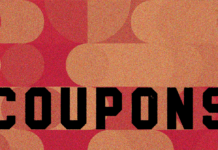“It’s still all about stimulus at this point: we’re seeing markets move on optimism that some kind of package is going to get done,” Esty Dwek, head of global market strategy at Natixis Investment Managers, told the Wall Street Journal’s Anna Hirtenstein and Ben Eisen.
At the same time, the political mood was trending in the opposite direction. Treasury Secretary Steven Mnuchin, President Trump’s lead negotiator, told House Speaker Nancy Pelosi (D-Calif.) that the president wanted to pursue a comprehensive package, a Pelosi spokesman said, according to Erica Werner and Jeff Stein. Yet as Mnuchin made the assertion to Pelosi on a phone call, White House spokeswoman Alyssa Farah told reporters that Trump wanted a “skinny” bill, only extending aid to airlines, forgivable loans to small businesses and another round of stimulus checks to individuals.
“We’ve made very clear we want a skinny package,” Farah said.
In fact, Trump has been all over the place.
Trump, tweeting from the Bethesda military hospital where he was being treated for coronavirus on Saturday, urged both sides to come to an agreement. By Tuesday, he sent stocks into a selloff by tweeting that he was calling off talks altogether before the election. Then he staked out his support for a more targeted bailout in a series of tweets later Tuesday night. Trump came all the way back around to pulling for a comprehensive deal after seeing the stock market reaction to his move to cancel talks altogether, Axios reports.
Stocks opened higher Thursday after Trump, in an interview on Fox Business Network, affirmed his interest in such a deal. “I shut down talks two days ago because they weren’t working out. Now they‘re starting to work out,” the president said. “We’re talking about airlines. And we’re talking about a bigger deal than airlines.” They sold off in the late morning when Pelosi told reporters she wouldn’t accept piecemeal aid.
The confusion about the president’s position and who speaks for him prompted Pelosi to confront Mnuchin, according to her spokesman, Erica and Jeff report. “The exchange clouded prospects for a deal of any kind, comprehensive or otherwise, less than four weeks before the November elections,” they write.
From CNN’s Phil Mattingly:
But some investors are also looking ahead.
With 25 days from the election, some on Wall Street see a Democratic sweep forming that could yield a bigger spending package than the one now under consideration.
“There’s growing confidence that there’s going to be a much bigger package after the election, particularly if polls are correct and we see Democrats taking control of the Senate as well as the presidency,” Franklin Templeton’s Mike LaBella tells me.
He says while “it would obviously be helpful for the economy to get it done as soon as possible,” investors have priced in more emergency relief. Now, he says, they are more interested in the scale of the finished product than whether “it gets done in 30 days or in three months.”
Jurrien Timmer, director of global macro at Fidelity, indicated expectations of such an outcome are powering a rally in small-cap stocks:
Democratic presidential candidate Joe Biden consolidating his polling lead is also reducing a worry that has been preoccupying investors: That a close election will lead to a contested outcome. The concern is that would spawn weeks of uncertainty over policy as the two sides duke out the results in courts.
As Biden pads his polling lead, global options markets are reflecting the shrinking fear of a post-election mess. They are “now pricing roughly half the Election Day event risk they were just a few weeks ago,” according to a Thursday note from JPMorgan’s fixed income strategy team.
Latest on the federal pandemic response
Both sides are trying to secure another round of stimulus checks.
But some economists view the $1,200 as too broad: “The first round of checks pumped $290 billion into the economy at a time when many Americans were facing layoffs and businesses suffered, but the efficacy of those payments has so far been hard to precisely track. There are some clues, however,” Yeganeh Torbati reports.
“A working paper published by the National Bureau of Economic Research in August, which used survey data, found that only 15 percent of people who received the stimulus checks said they had spent or planned to spend most of the payment. Mostly, people said they saved the cash or used it to pay down debt. American households said they spent 40 percent of their checks on average, with 30 percent going into savings and another 30 percent going toward debt payments.”
- Trump defies convention with last-minute push to deliver money to key voting blocs: The president in recent weeks “has attempted to push billions in taxpayer money to farmers, seniors and other voters in swing states that could decide his political fate,” Jeff Stein reports. The effort stands out “as uniquely aggressive in the modern presidency, according to longtime budget experts.”
- Key quote: “Clearly, he is trying to buy the election in a way nobody has ever done before, at least not in my lifetime,” said Bill Hoagland, senior vice president at the Bipartisan Policy Center and former Republican staff director for the Senate Budget Committee.
Coronavirus fallout
Unemployment claims remain at historically high levels.
Weekly jobless claims show the pandemic continues to drag the economy: “The number of initial claims inched down — from 849,000 to 840,000 last week. The number of new claims for gig and self-employed workers dropped from about 650,000 to 460,000,” Eli Rosenberg reports.
“All told, about 25.5 million people are collecting some kind of unemployment insurance. The number of jobless claims has fallen from their peak in the spring, but the rate has slowed in recent months. ‘The story is, we’ve hit a plateau in unemployment claims,’ said Robert Frick, corporate economist at Navy Federal Credit Union.”
- About 60 million households expect income loses this month: “Minority households in particular are continuing to struggle economically from the pandemic, according to the survey conducted by the Census Bureau from Sept. 16-28 … The latest review showed a slight reduction in the number of Americans worried about potential income losses. During the prior survey period conducted Sept. 2-14, 62.3 million people were concerned,” Bloomberg News’s Alexandre Tanzi reports.
- One in six workers is unlikely to get a raise next year: “About a third of the 705 companies that participated said they have reduced the money budgeted for pay increases for next year,” Bloomberg News’s Anders Melin reports of a survey late last month by human-resources consulting firm Willis Towers Watson Plc. “The pandemic has forced virtually every company to rethink its compensation plans,” said Catherine Hartmann, leader of the company’s North America Rewards practice.
OSHA dismissed a majority of coronavirus-related retaliation complaints.
Worker safety has been a major story line during the pandemic: “The federal agency charged with upholding workplace safety has dismissed more than half of the complaints from workers who say they were retaliated against for raising coronavirus safety concerns, according to a new report,” Eli Rosenberg reports.
“Advocates and former OSHA officials say the agency’s lack of response to retaliation complaints is just the latest example of it favoring companies over the workers it is tasked with safeguarding. Plus, they say, the stakes are much higher in the middle of a pandemic that has made so many workplaces more dangerous … In a statement, OSHA said it is fielding and investigating every complaint.”
More from the U.S.:
- Infections fell 75 percent after mask mandates and bar closures in Arizona: “The number of new cases being reported each day stabilized about two weeks later [after cities were allowed to imposed mandates], around the same time that Ducey closed bars, gyms, water parks and movie theaters. With that two-pronged approach in place, the 7-day average of new cases fell 75 percent from July 13 to Aug. 7, the researchers found,” Antonia Farzan reports.
- Contacts of Trump guests may never be traced: “Guests of the president and his campaign returned to at least 20 states, often by plane. They visited college campuses and sat across the dinner table from elderly parents. They attended church and addressed crowds at indoor conventions, including on the topic of election security,” Isaac Stanley-Becker, Rosalind S. Helderman, Josh Dawsey and Amy Gardner report of the based on events held between Sept. 25 and Oct. 1, when Trump announced he had tested positive.
- The CDC is still playing a limited role in contact tracing: “The White House by Tuesday completed contact tracing related to the president’s infection and cases involving several other people, a senior White House official said, raising concerns among infectious-disease experts about whether a thorough investigation could be completed so quickly,” Lena H. Sun, Yasmeen Abutaleb and Josh Dawsey report.
- Trump suggested his infection came from reception with Gold Star families. “The event with the Gold Star families took place on Sept. 27, the day after more than a hundred people also gathered at the White House, many without masks, to mark Trump’s nomination of Judge Amy Coney Barrett to the Supreme Court,” Paul Sonne reports. Trump, who floated the theory in his Thursday interview on Fox Business, offered no evidence.
- McConnell says he has avoided the White House over its lax public health approach. The Senate majority leader said he hasn’t been to the White House in two months “because my impression was their approach to how to handle this was different from mine and what I insisted that we do in the Senate, which is to wear a mask and practice social distancing,” Felicia Sonmez reports.
From the corporate front:
- WarnerMedia plans thousands of job cuts: “AT&T Inc.’s WarnerMedia is restructuring its workforce as it seeks to reduce costs by as much as 20 percent as the coronavirus pandemic drains income from movie tickets, cable subscriptions and television ads …,” WSJ’s Drew FitzGerald, Joe Flint and Benjamin Mullin report.
- Craft beer companies face a can shortage: “A nationwide shortage of cans is the latest threat to craft beer. Ball Corp., the world’s largest manufacturer of cans, told investors this week that the U.S. market alone is short 10 billion cans in 2020, according to Beer Business Daily, a trade publication,” Laura Reiley reports.
Trump tracker
Longtime GOP fundraiser Elliott Broidy charged with acting as a foreign agent: “Prosecutors unsealed the 31-page information against Broidy on Thursday, outlining how they believe he took millions in undisclosed money to end a U.S. investigation into a billion-dollar embezzlement of a Malaysian state investment fund and, separately, to return outspoken Chinese exile Guo Wengui to his home country,” Matt Zapotosky reports.
“The allegations mark the culmination of a sprawling, years-long investigation that became focused in part on a man who helped raise millions for President Trump’s election and the Republican Party.”
Pocket change
Morgan Stanley to buy Eaton Vance for $7 billion.
The bank continues to shift away from trading: “The deal comes just days after Morgan Stanley completed its $11 billion takeover of E*Trade Financial Corp., and is another leg in a decadelong turnaround project for Chief Executive James Gorman, who has closed risky trading operations and doubled down on wealth and asset management,” the WSJ’s Liz Hoffman reports.
“The trading profits of the 2000s are long gone, sapped by new regulations and shifting investor preferences. Asset management, which produces steady fees and requires little capital to run, has become a priority for banks including Goldman Sachs Group Inc. and JPMorgan Chase & Co. Morgan Stanley is a midsize player in that space, too small to reap the cost savings of being a giant like BlackRock Inc. but too big to credibly style itself a boutique.”
Wells Fargo CEO Charles Scharf is on the defensive: “America’s fourth-largest bank is in the grip of a recession that threatens to deliver steep loan losses. Near-zero interest rates are straining profit margins. And the bank is still in hot water with regulators, which imposed a growth cap as a result of the bank’s four-year-old fake-account scandal and the plethora of problems it exposed,” the WSJ’s Ben Eisen reports.
“Then there are the self-inflicted wounds. Mr. Scharf has drawn fire from employees and Washington lawmakers for filling top jobs with a largely white, largely male cadre of former colleagues — and for saying there were few Black candidates with the required experience for those positions. The episode damaged morale within the bank, especially among Black staffers, current and former employees said.”
Chart topper
From Republican lobbyist Bruce Mehlman:








